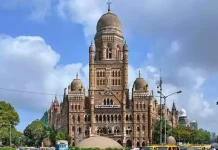- As you are aware, the bane of corruption is so deeply rooted in India that the all-pervasive cynicism surrounding the issue is quite palpable. Each of us would have experienced in person how the system works in the country when bribe assumes critical importance in getting even our routine government tasks accomplished. None of the government work that common citizens must take recourse to would be possible without greasing the palms of the corrupt machinery at literally every level. Unless you are prepared for a long haul. Even though we have heard enough sermons from the political class about eradicating the bane of corruption from the governance, the fact of the matter is we are far from qualifying to be called a corrupt-free society.

PC: EIMF
- The bane of corruption not only corrodes the moral fabric of society grievously but also completely alienates citizens from the governance that assumes responsibility on the back of providing clean government. A step to address the issue was initiated recently. In a welcome move, a seven-judge SC constitution bench overturned a strange judgment delivered 26 years ago. Note that in 1998, a verdict in PV Narasimha Rao vs State concluded that legislators accepting bribes to influence their performance in the House was protected by the Constitution’s articles on parliamentary privilege. This interpretation triggered discomfort among subsequent benches, and rightly so. Thankfully, SC has ruled that the Constitution doesn’t give a free pass to bribery.
- Indeed, the 1998 judgment defied common sense. It said if a legislator accepted a bribe and acted according to its influence, immunity kicked in. However, if the legislator agreed to accept a bribe but eventually acted independently, it would trigger prosecution. Flawed arguments, looked from any angle. No wonder, many SC benches tried to tiptoe their way around this embarrassing precedent. Here onwards, bribery will be treated as just that. There are no privileges granted by the Constitution to protect legislators who accept bribes anymore. This is the highlight of SC’s judgment. It’s clear and there are no loopholes. SC said the offense of bribery is complete when the legislator accepts one. Period. Will it work effectively in the country? Hopefully, yes.

PC: World Atlas
- There are no privileges that can be invoked to escape prosecution once the legislator accepts a bribe. The Constitution offers both MPs and MLAs special privileges to express themselves in the House. This freedom of expression is unrelated to a citizen’s fundamental right to expression. The purpose of parliamentary privileges is to enable elected representatives to carry out their functions effectively. Further, SC also laid out a two-step test to draw boundaries around parliamentary privileges claimed by individuals. One, it must be linked to the collective functioning of the House. Two, it must have a functional relationship to the discharge of duties. In principle, SC did the right thing. Reality is another matter altogether, you see. Yes, the law needs to be based on principles. Hope the bane of corruption recedes to some extent. Or is it?






